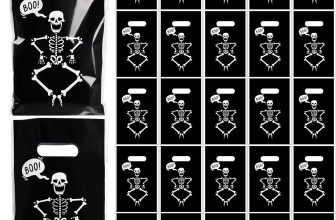
Halloween Resurrection Review Alien: Resurrection: The Official Movie Novelization – Didiar
A Double Dose of Resurrection: A Comparative Review of Alien: Resurrection and Halloween: Resurrection
The late 90s and early 2000s were…a time. A time when studios often opted for style over substance, resulting in sequels that, while sometimes entertaining, often left fans scratching their heads. Two prime examples of this trend are Alien: Resurrection: The Official Movie Novelization by A.C. Crispin (based on the screenplay by Joss Whedon) and Halloween: Resurrection, the eighth installment in the Halloween franchise. While both films share the "Resurrection" title, hinting at a return to form, their execution and reception diverge wildly. Let’s delve into these cinematic (and literary, in the case of Alien) resurrections to see which one truly rises from the ashes.
Alien: Resurrection: More Than Meets the Eye (Or, Nostromo)
Alien: Resurrection attempts to breathe new life into the franchise by resurrecting Ripley…literally. Two hundred years after her fiery demise in Alien 3, Ripley is cloned, along with the alien queen growing inside her. The goal? To harvest aliens for weapons research. The ensuing chaos, punctuated by a ragtag group of space pirates, offers a unique spin on the classic Alien formula. Crispin’s novelization expands upon the film, providing richer character development and delving deeper into the motivations of the characters, both human and alien. This is particularly beneficial given some of the, shall we say, questionable decisions made on screen.
Crispin’s prose brings a depth that the movie sometimes lacks. We understand Call’s (Winona Ryder) struggle with her identity as an Auton, a synthetic lifeform created by other synthetics. The moral ambiguities of the scientists, obsessed with weaponizing the alien threat, become more pronounced. Even the xenomorphs, particularly the newborn hybrid, are given a degree of pathos. This novelization isn’t just a scene-for-scene retelling; it’s an exploration of the themes the movie brushes against, such as corporate greed, genetic manipulation, and the nature of humanity.
The novel also manages to smooth over some of the film’s more jarring moments. The underwater sequence, while visually stunning, felt somewhat out of place in the larger Alien narrative. Crispin grounds this scene with technical details and character reactions, making it feel less like a detour and more like a crucial step in the crew’s fight for survival. The overall effect is a more cohesive and thought-provoking experience than the movie alone provides. The attention to detail provided in the novel helps one better understand the narrative than solely relying on the theatrical release.
Expanding the Universe: Character Depth and Narrative Nuance
One of the strongest aspects of Alien: Resurrection: The Official Movie Novelization is its ability to expand on the characters. The film, constrained by runtime and spectacle, often reduced characters to archetypes. Crispin gives them inner lives, anxieties, and motivations that make them feel more real. Ripley’s internal struggle with her new, hybrid identity is particularly well-developed. She’s no longer the purely human hero we knew from the previous films. She’s something else, something both familiar and terrifying. This internal conflict adds a layer of complexity to her actions and choices, making her a more compelling character. The novelization further fleshes out the crew of the Betty, giving each member a distinct personality and backstory. From the stoic Johner to the pragmatic Christie, each character contributes to the overall narrative in a meaningful way. This depth of characterization makes their struggles and sacrifices feel more impactful.
Furthermore, the novel delves into the philosophical implications of cloning and genetic engineering. The scientists’ obsession with controlling the xenomorphs raises questions about the ethics of tampering with nature and the potential consequences of unchecked ambition. The novel doesn’t offer easy answers, but it encourages readers to consider the complex moral issues at play.
Halloween: Resurrection: A Franchise Fumbling in the Dark
Now, let’s turn our attention to Halloween: Resurrection. The premise is… well, it’s a mess. Busta Rhymes karate-kicks Michael Myers. I feel like that’s all I need to say. The film disregards the ending of Halloween H20, killing off Laurie Strode (Jamie Lee Curtis) in the opening scene, only to introduce a convoluted plot involving a group of college students spending Halloween night in Michael Myers’ childhood home as part of a live internet broadcast. The idea, presumably, was to capitalize on the burgeoning reality TV craze. The execution, however, is a masterclass in missed opportunities.
The biggest problem with Halloween: Resurrection is its lack of respect for the source material. Michael Myers, once a terrifying embodiment of pure evil, is reduced to a lumbering, predictable killer. The suspense and psychological horror that defined the original Halloween are replaced with cheap jump scares and gore. The characters are paper-thin, serving only as fodder for Michael’s knife. The attempt to incorporate a modern, internet-savvy angle feels forced and dated. The film’s reliance on reality TV tropes falls flat, failing to generate any genuine tension or scares.
The film’s most infamous moment – Busta Rhymes’ aforementioned karate kick – perfectly encapsulates its tone-deaf approach. It’s a moment of unintentional comedy that undermines the established mythology of Michael Myers. It’s clear that the filmmakers prioritized spectacle over substance, resulting in a film that is both forgettable and disrespectful to the Halloween legacy. It is an affront to all the built-up fear surrounding the figure that John Carpenter so brilliantly crafted decades prior.
The Downfall of a Legend: Formulaic Scares and Missed Opportunities
Halloween: Resurrection fails on almost every level. The story is convoluted and illogical, the characters are uninteresting, and the scares are predictable. The film relies heavily on jump scares, which quickly become repetitive and ineffective. There’s no sense of dread or suspense, no feeling that the characters are in genuine danger. Michael Myers, once a terrifying force of nature, is reduced to a one-dimensional slasher villain. His motivations are unclear, and his actions lack the chilling impact of his earlier appearances. The film’s attempt to modernize the franchise with its internet-centric plot feels forced and contrived. The reality TV angle is poorly executed, failing to generate any genuine tension or scares. The characters’ interactions feel unnatural, and the dialogue is often clunky and exposition-heavy. The film’s ending is particularly unsatisfying, offering no sense of closure or resolution. It’s a rushed and anticlimactic conclusion to a film that was already struggling to find its footing. Overall, Halloween: Resurrection is a prime example of a franchise failing to understand what made its earlier installments successful. It’s a film that prioritizes spectacle over substance, resulting in a forgettable and disrespectful addition to the Halloween canon.
Comparative Analysis: Resurrection Realities
Let’s compare these two "Resurrection" efforts side-by-side:
| Feature | Alien: Resurrection | Halloween: Resurrection |
|---|---|---|
| Respect for Source Material | Mixed. Adds new elements but retains core themes. | Poor. Disregards established lore and character arcs. |
| Character Development | Strong in the novelization; decent in the film. | Weak. Characters are largely expendable. |
| Plot Coherence | Generally coherent, with some questionable moments. | Convoluted and illogical. |
| Suspense/Horror | Suspenseful with moments of body horror. | Relies on cheap jump scares. |
| Thematic Depth | Explores themes of cloning, genetic manipulation, and corporate greed. | Virtually none. |
| Overall Quality | Divisive, but offers interesting ideas. The novelization enhances the experience. | Widely considered one of the worst entries in the franchise. |
This table highlights the key differences between the two films. Alien: Resurrection, while flawed, attempts to expand on the Alien universe and explore complex themes. The novelization, in particular, adds depth and nuance to the story. Halloween: Resurrection, on the other hand, is a shallow and disrespectful attempt to cash in on the franchise’s popularity.
The Power of the Page: Why Novelizations Matter
The case of Alien: Resurrection highlights the often-overlooked value of movie novelizations. A skilled author can take a flawed or underdeveloped film and transform it into something more meaningful. Novelizations can provide deeper character insights, explore complex themes, and fill in plot holes. They can also offer a different perspective on the story, allowing readers to connect with the material in new and unexpected ways. In the case of Alien: Resurrection, Crispin’s novelization elevates the film from a visually impressive but narratively uneven spectacle into a thought-provoking exploration of humanity’s relationship with technology and the unknown.
Moreover, for fans who appreciate worldbuilding, a novelization provides access to details that a film, limited by its medium, cannot. Internal monologues, extended backstories, and nuanced descriptions of settings all contribute to a richer, more immersive experience. It’s not about simply reliving the movie; it’s about delving deeper into its core.
Practical Applications: When to Choose Each “Resurrection”
So, when might you choose to engage with either of these "Resurrection" titles?
- Alien: Resurrection (Novelization): Perfect for fans of the Alien franchise who want a deeper, more nuanced understanding of the story. Ideal for readers who enjoy science fiction with strong thematic elements and complex characters. Also suitable for those who were disappointed by the film and are looking for a more satisfying experience. It could even be used in a classroom setting to discuss the ethical implications of cloning and genetic engineering.
- Alien: Resurrection (Film): Recommended for fans of action-packed science fiction with impressive visual effects. Best viewed with a group of friends who are willing to overlook some of the film’s flaws. Serves as a decent example of late 90’s sci-fi cinema and could be used in a film class to discuss directorial style, effects and cinematography.
- Halloween: Resurrection: Perhaps only recommended for die-hard Halloween fans who want to see every entry in the franchise, regardless of quality. Potentially useful as a cautionary tale in film school, demonstrating what not to do when making a sequel. Or maybe, just maybe, for a laugh with friends who appreciate so-bad-it’s-good cinema.
Conclusion: One Rises, One Falls
In the end, the "Resurrection" title proves to be ironically accurate for Alien: Resurrection. The novelization, in particular, breathes new life into a franchise that was showing signs of fatigue. Halloween: Resurrection, however, is a cinematic stillbirth, a failed attempt to revive a horror icon. While both films share a similar title, their execution and reception highlight the importance of respecting the source material, developing compelling characters, and crafting a coherent and engaging narrative. One offers a genuine resurrection; the other, a regrettable reanimation.
Frequently Asked Questions (FAQ)
Q: Is Alien: Resurrection: The Official Movie Novelization worth reading even if I didn’t like the movie?
A: Absolutely! Many readers find the novelization to be a significant improvement over the film. A.C. Crispin’s writing provides a level of depth and nuance that the movie lacks. The novel delves deeper into the characters’ motivations, explores the themes of cloning and genetic manipulation more thoroughly, and smooths over some of the film’s more awkward moments. The expanded internal monologues allow readers to connect with Ripley’s internal conflict and the moral grayness of the situation in a way that the movie simply can’t achieve. If you’re a fan of the Alien universe and are looking for a more substantial and thought-provoking experience, the novelization is definitely worth a read. It gives the characters and concepts a full chance to come into their own.
Q: What are the major differences between the Alien: Resurrection film and the novelization?
A: The novelization of Alien: Resurrection expands upon several aspects of the film, providing a richer and more detailed experience. Primarily, it offers a far deeper exploration of the characters’ internal thoughts and motivations, especially Ripley’s struggle with her hybrid identity and Call’s journey as an Auton. Secondly, the novel provides more context to the world-building, fleshing out the United Systems Military’s agenda and the background of the crew of the Betty. The novel also addresses some of the plot holes and logical inconsistencies present in the film, offering explanations and justifications that improve the overall narrative coherence. Finally, Crispin’s writing style adds a layer of sophistication to the story, elevating it beyond a simple action-horror flick to something more intellectually engaging.
Q: Is Halloween: Resurrection really as bad as people say?
A: Unfortunately, yes, Halloween: Resurrection generally lives up to its negative reputation. While taste is subjective, the film is widely criticized for its convoluted plot, weak characters, reliance on cheap jump scares, and disrespectful treatment of the Halloween mythology. The decision to kill off Laurie Strode in the opening scene angered many fans, and the introduction of the reality TV angle felt forced and dated. Busta Rhymes’ performance, while memorable for the wrong reasons, is often cited as one of the film’s biggest flaws. Compared to the suspenseful and atmospheric horror of the original Halloween, Resurrection feels like a generic slasher flick with little to offer beyond gore and unintentional comedy.
Q: Are there any redeeming qualities to Halloween: Resurrection?
A: It’s difficult to find many redeeming qualities in Halloween: Resurrection. However, some viewers might appreciate the film’s self-awareness and willingness to embrace its own absurdity. The over-the-top action sequences and ridiculous dialogue can be unintentionally humorous, making it a potentially enjoyable watch for those who appreciate "so bad it’s good" cinema. Additionally, some fans might find the film’s exploration of internet culture, however clumsy, to be mildly interesting as a time capsule of early 2000s trends. However, these small aspects do little to excuse the poor writing, uninspired direction, and overall lack of respect for the Halloween franchise.
Q: Which film is better for home use: Alien Resurrection or Halloween Resurrection?
A: For home use, Alien: Resurrection (especially after reading the novelization) is a far superior choice compared to Halloween: Resurrection. Alien: Resurrection, though divisive, offers a more complex and thought-provoking viewing experience, making it suitable for engaging discussions and repeat viewings. The novelization enhances the film, providing depth to the characters and plot, making it a worthwhile addition to a home library. It can also be a good starting point for discussions about science fiction themes. On the other hand, Halloween: Resurrection is often considered one of the worst entries in the franchise and may not provide a satisfying or enjoyable viewing experience for most people at home.
Q: Are there any other movie novelizations that are better than the films they are based on?
A: Yes, there are several movie novelizations that are considered superior to their film counterparts. Starship Troopers by Robert A. Heinlein, upon which the movie Starship Troopers is loosely based, is a far better book that has more political depth. Do Androids Dream of Electric Sheep? by Philip K. Dick, the source material for Blade Runner, is considered to be a more philosophically engaging exploration of artificial intelligence and what it means to be human. Other examples include The Abyss novelization by Orson Scott Card, and The Last Starfighter novelization by Alan Dean Foster, which both flesh out the characters and plot in ways the films couldn’t. These novelizations often provide deeper character development, explore complex themes, and fill in plot holes, resulting in a more satisfying and enriching experience for the reader.








